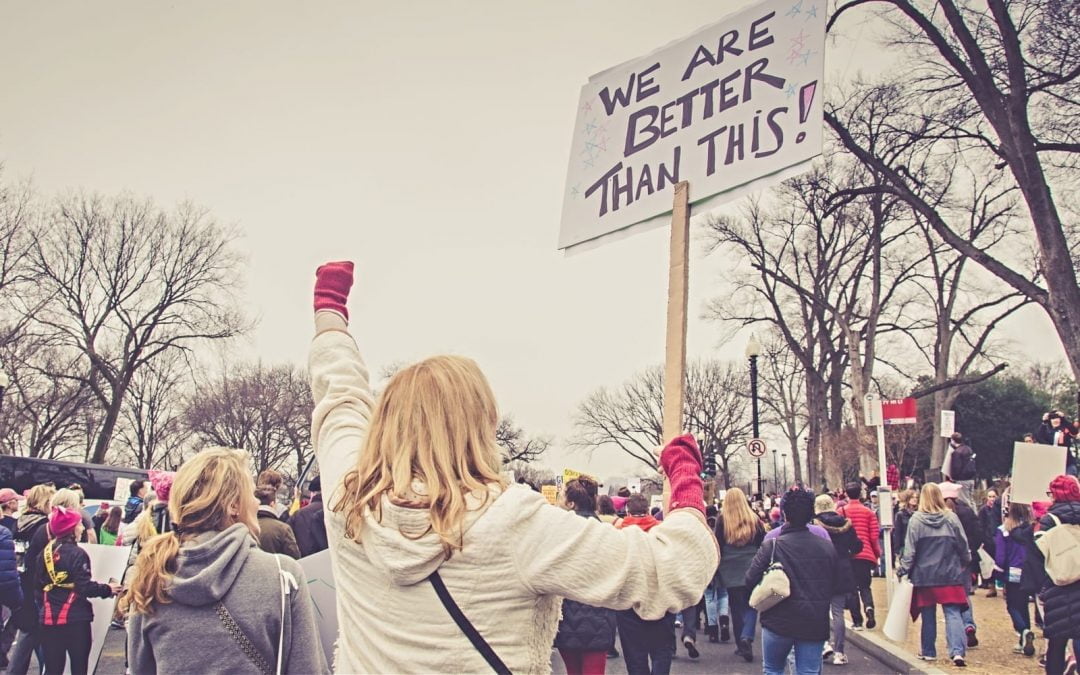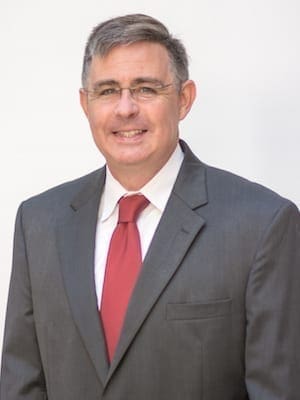As a freshman in college, I was eager to become more “political.”
I grew up around lawmakers and lobbyists in the Alabama legislature; as an 18-year-old idealist, I was ready to make a difference.
This led me to run for student government, attend political functions in Georgia (I attended Emory University in Atlanta for my undergraduate degree), pursue leadership in my fraternity, engage in endless debates and participate in rallies for positive change and protests.
One particular protest would change my life.
The Ku Klux Klan marched in downtown Atlanta in January 1989 to oppose the Martin Luther King holiday. Perhaps their biggest motivation was to remind the public they were still alive, resistant to change and angry as ever.
My roommate and I took our place against the guardrails near the federal courthouse to protest the KKK’s message of racism and division.
I can still feel the tension in the crowd and the sense that violence lurked just under the surface.
I held up a homemade sign that read, “No More Hate,” as we waited for the march to wind toward us.
A surreal scene began to unfold as we watched the marchers make their way down a long street in our direction.
Only seven white supremacists walked in their demonstration, but more than 2,000 National Guardsmen, Georgia Bureau of Investigation agents and prison guards had been deployed.
Sharpshooters dotted the rooftops, and lines of armed police officers extended everywhere.
I could barely make out the marchers, who were surrounded completely, perhaps 15 deep on each side, by their protectors.
The marchers carried their own sign that said, “No King Over Us.” As they approached our spot, the crowd began to shout, jostle around and wave their fists.
Then a brick flew over my head toward the marchers, and everything changed.
All of a sudden, we were in the middle of a riot.
Rocks flew in every direction. People screamed. The crowd completely dissolved in a panic. I felt very afraid and uncertain what to do, wanting nothing more than to get away.
When my roommate and I started to run in one direction, we would be met by police in riot gear and forced to go in another direction. I was pushed down by an officer with a shield, and this was confusing.
I wasn’t threatening or in any way displaying violence. My roommate seemed to be enjoying himself in the chaos, but I felt frightened and powerless.
We finally found a long route back to the car and got safely back to campus. Turning on the news, we could hardly believe we were in the middle of what was being reported: cars on fire, tear gas clouding the streets, people running in every direction.
It dawned on me that those who were protesting hatred and violence seemed to mirror the same hatred and violence. Nothing about that day brought anyone closer together.
Freedom of expression, one of our most cherished values, was represented in both the march and the protest. But something broke down in the way that it was exercised.
For me, that protest and riot was a kind of wake-up call to the harsh realities of the world, and to the courage and commitment it would take to make the world a better place.
I arrived with a sense of power (the power of protest; the power of positive change) but left in fear. Those marching likely felt more justified in their hatred, and those who rioted returned hate for hate.
Most of us just felt stuck in the middle.
Like many people younger than me, I’ve had great visions of wanting to change the world, through serving people and affecting change.
But I have also experienced what it feels like to be “stuck” – caught between a vision of beauty and a fear of what can happen when you start to speak up and be the change you want to see.
So many young people today lack a belief that things can and will get better.
On the one hand, there’s great hopefulness for a better world. On the other hand, there’s little confidence that things will get anything but worse.
In today’s political climate, people often feel pessimistic and resigned. Power seems always to be in the hands of someone else.
Why try, when those in power always seem to find a way to stay in power? Many young people have rejected politics as no more than self-interested, money-driven and ego-infested posturing that lacks practical application.
This should be a call to action, as we help the next generation by sharing underlying principles and inspiration to encourage young people to hear the call to public service and respond.
Editor’s note: This column is an adapted excerpt from McDougal’s book, “Faith, Hope & Politics: Inspiring a New Generation to Community-Changing Political Engagement,” published by Smyth & Helwys. It is used with permission. The book is available here.
Brent McDougal is senior pastor of First Baptist Church in Knoxville, Tennessee.


